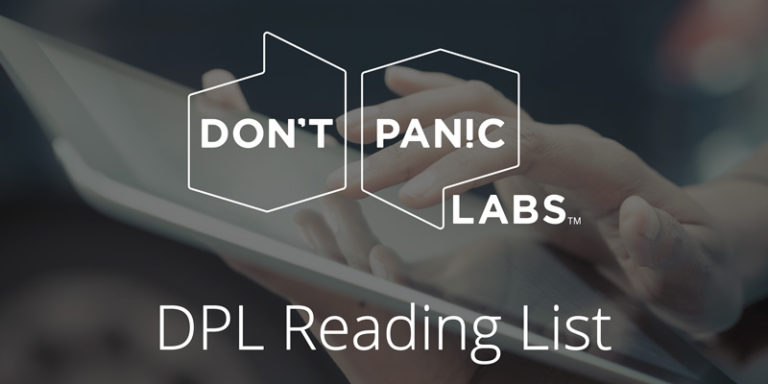
DPL Reading List – May 20, 2016
Here are some of the articles we’ve been reading around this office this week.
4 Millennials Share How To Connect With Anyone (No Matter How Successful They Are) (Thanks to Brian Zimmer for recommending this article) – “Meeting new people is tough. It’s something that many people dread. When some of us attend mixers and events, we get butterflies in our stomachs, we fumble over our words, or we don’t end up having a conversation with anyone. Whenever you go anywhere, you don’t really know whom you will end up meeting or their standing. Is it someone successful or someone soon to be famous? No matter what situation you are in, building quality relationships increases your ability to achieve success.”
Three Years In San Francisco (Thanks to Jarrod Wubbels for recommending this article) – “There are things I’m proud of and things I’m not proud of when it comes to what our department has accomplished over the last few years, but standing above anything related to our craft is the responsibility the team took in building empathy for women and minorities in our industry, having honest conversations about where we needed to improve, and finally diversifying our team substantially. I’m even more proud that it was thoughtful team members — female designers and researchers specifically — who rubbed together the sticks to get the fire going.”
4 Factors That Predict Startup Success, And One That Doesn’t – “What makes a venture capital investment successful? Some of the most interesting data on this question comes from an analysis published last year by the venture capital firm First Round Capital. The firm’s unique data set comprises information on over 300 companies and nearly 600 founders, including founder characteristics such as age, gender, education, firm location, and prior work and startup experience. The study found several correlates with success — some reassuring, some surprising.”
New York City Casts A Net To Catch The Next Big Start-Up (Thanks to Brian Zimmer for recommending this article) – “To improve the odds of fostering that next big thing in New York, executives at tech start-ups, big tech companies and venture firms are creating a new policy and advocacy organization, Tech:NYC. The nonprofit will be formally announced at an event this week. Tech:NYC has no set agenda yet. But its approach, said Julie Samuels, the executive director, will be to work early with city, state and federal officials on issues that affect tech companies, before laws are passed. Some broader issues like taxes, schools and affordable housing also help determine whether people want to work and live in a city.”
Combining Typefaces: Free Guide To Great Typography (Thanks to Jarrod Wubbels for recommending this article) – “Originally published by Five Simple Steps in 2013, my Pocket Guide to Combining Typefaces has sold thousands of copies, been used in college curricula, and been cited in conference talks by industry-leading designers. Unfortunately, Five Simple Steps closed its doors this month. Because this pocket guide is no longer available for purchase, I’ve decided to make it available for free here on the Typekit blog. Download the PDF, and enjoy.”
Multitasking Is Killing Your Brain – “When we complete a tiny task (sending an email, answering a text message, posting a tweet), we are hit with a dollop of dopamine, our reward hormone. Our brains love that dopamine, and so we’re encouraged to keep switching between small mini-tasks that give us instant gratification. This creates a dangerous feedback loop that makes us feel like we’re accomplishing a ton, when we’re really not doing much at all (or at least nothing requiring much critical thinking). In fact, some even refer to email/Twitter/Facebook-checking as a neural addiction.”
Building AI Is Hard—So Facebook Is Building AI That Builds AI (Thanks to Matt Babcock for recommending this article) – “In other words, for computers to get smarter faster, computers themselves must handle even more of the grunt work. The giants of the Internet are building computing systems that can test countless machine learning algorithms on behalf of their engineers, that can cycle through so many possibilities on their own. Better yet, these companies are building AI algorithms that can help build AI algorithms. No joke. Inside Facebook, engineers have designed what they like to call an “automated machine learning engineer,” an artificially intelligent system that helps create artificially intelligent systems.”



